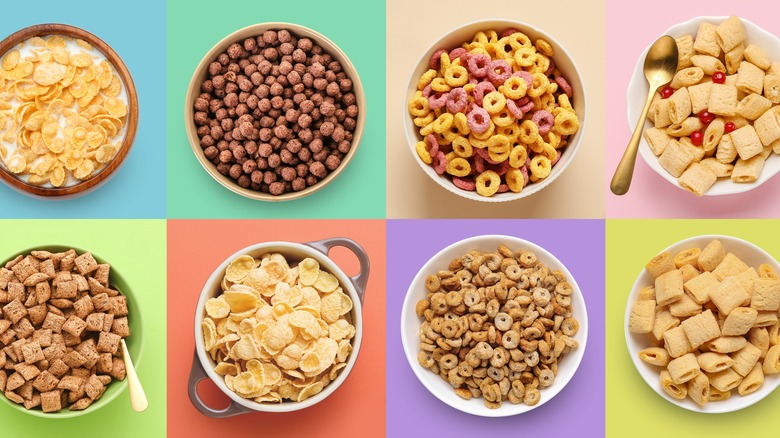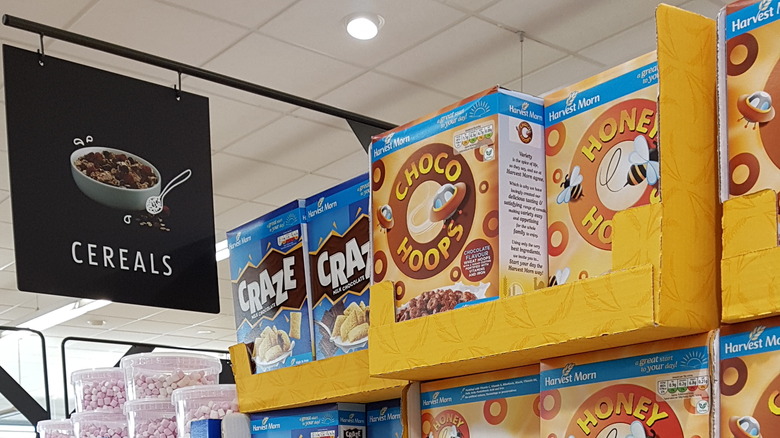The Difference Between US And UK Aldi Cereal Boxes
Grocery chain Aldi has a cereal aisle filled with store-brand takes on all of the breakfast classics, from Fruit Rounds to Marshmallows and Stars (and we've ranked 20 popular Aldi cereals, if you're looking to mix up your selection on your next visit). The bright colors and graphics are designed to draw your attention, but there's one major difference you'll immediately spot between U.S. and U.K. Aldi cereal boxes. Namely, there's a particular element that U.K. Aldi cereal boxes are lacking — cartoon mascots.
Your childhood was likely filled with iconic or even bizarre cereal mascots who greeted you from the front of boxes every morning, but that isn't the case for cereal consumers in the U.K. anymore. In January 2020, Aldi U.K. announced its commitment to having cartoon characters removed from the packaging of its store-brand cereals, citing "pester power" as a primary motivation behind the decision.
And, it turns out it's not the only one; other U.K. grocery store chains, including Lidl and Asda, have likewise switched up the packaging of their cereals to feature only text and colors, no friendly mascots to be seen. Additionally, in the two years leading up to the decision to remove cartoon mascots, Aldi had already taken steps to reduce the sugar content of its cereals by 25%.
Kicking pester power to the curb
The iconic food mascots you remember from childhood cereal boxes all have one thing in common — they almost always graced boxes containing relatively sugary cereals that may not have been your parents' first choice. Aldi and other grocery stores that have made the switch noted that the intent is to make it easier for parents to embrace healthier food choices for their kids. By taking away the cartoon icons designed to catch children's eyes, they've made it less likely that kids will beg their parents for a particular type of cereal.
The facts back up this seemingly trivial switch. There's evidence that suggests children will often like a particular cereal more if an appealing character is promoting it. There have even been studies done that examine the negative dietary implications of parents caving into their young ones constantly pestering them for particularly sugary food items.
Aldi U.K.'s simple switch makes the different cereal types a little less immediately distinct, as kids will only know their favorites by name and color rather than by a bold mascot glaring at them from the front of the box. For U.K. parents, this means they can shop the cereal aisle without fear of their children being swayed by powerful marketing.

